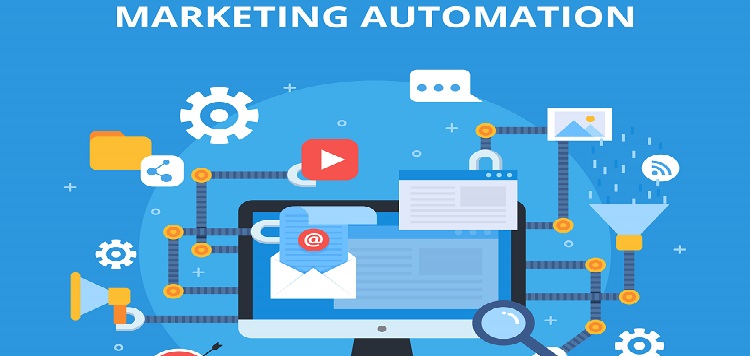Marketing automation tools have completely revolutionized the way businesses approach marketing in the digital age. Gone are the days of businesses relying on old techniques of mass advertising through traditional media channels. Instead, they can now hyper-target their audience while providing a personalized experience from the get-go. With marketing automation, businesses can leverage powerful tools that combine cutting-edge technology with data analysis to drive exceptional results in efficiency, profitability, and customer engagement.
Marketing Automation Tools: A Brief Overview
Marketing automation tools encompass a range of software platforms that automate and streamline marketing tasks, allowing businesses of all sizes to target their campaigns with pinpoint accuracy. Instead of sending out generic messages to their entire mailing list, businesses can tailor their marketing efforts based on customer preferences.
Evolution of Marketing Automation Tools
Marketing automation tools have experienced immense growth over the years. Today, businesses have access to tools that are far more sophisticated, agile, and responsive to customer behavior than ever before. Marketing automation programs now utilize machine learning and artificial intelligence technologies to analyze customer data, automate content optimization, and improve targeting precision.
The role of artificial intelligence in marketing automation
The influence of AI in marketing automation is creating endless possibilities for businesses, as it enables them to personalize interactions on a larger scale. AI algorithms automatically analyze customer data, identify segmentation, and analyze buyer behavior. AI can go beyond demographic information to analyze customer interactions and learn more about what works to convert leads into customers. By comparing the characteristics of converting customers with potential customers, AI can help identify which leads are most likely to result in conversions.
Marketing automation tools and customer insights
Marketing automation tools provide businesses with unparalleled insights into their customers’ behavior and preferences. By analyzing customer data, such tools can help identify patterns, such as the channels that are driving the most conversions, the best time of day to send emails, or even how to personalize content to meet specific customer needs. Thus, marketing automation tools allow businesses to make data-driven decisions, engaging with their customers in a more personalized way and creating a superior customer experience.
Integration with other business systems
Marketing automation tools now integrate with other business systems, such as CRM platforms and e-commerce platforms. This results in a more holistic view of the customer journey, allowing businesses to adapt and personalize their approach at every touchpoint. This integration helps ensure that customer interactions remain relevant and impactful every time, helping businesses stay ahead of what their customers expect.
Email marketing automation tools
Email marketing automation tools allow businesses to send targeted and personalized emails based on subscriber behavior and preferences. By segmenting email lists, businesses can create a personalized and engaging experience for each subscriber, which can generate a higher return on investment, engagement, and conversion rates. These platforms can automate email campaigns, making sure that the right message is being sent to the right customer at the right time, eliminating guesswork and ensuring more effective lead nurturing.
Social media marketing automation tools
Social media marketing automation tools help businesses manage and automate their social media presence. By scheduling posts, analyzing engagement, and monitoring brand mentions, businesses can stay on top of customer engagement while freeing up time to focus on long-term growth strategies. With these tools, social media can be a powerful source of conversions and customer loyalty.
Lead Generation and Management Tools
Lead generation and management tools can help businesses capture and manage leads effectively. These tools create engaging landing pages, forms, and pop-ups that attract quality leads that are more likely to convert. Additionally, these tools track lead activity throughout the sales funnel, allowing sales teams to prioritize leads for follow-up. This can lead to shorter sales cycles and higher conversion rates.
Customer Relationship Management (CRM) tools
Customer relationship management (CRM) tools help businesses organize and analyze customer interactions more effectively. These tools provide businesses with a centralized and comprehensive view of their customers, enabling them to personalize their marketing approach and drive customer retention. CRM systems help businesses connect with customers on a one-to-one level, streamlining marketing, sales, and customer service to drive greater revenue growth.
Analytics and Reporting Tools
Analytics and reporting tools help businesses measure the effectiveness of their marketing campaigns by tracking metrics such as engagement, conversions, and return on investment. Such tools provide businesses with valuable insights into their campaign performance, which can be used to tweak and adjust campaigns for better results.
The future of marketing automation tools is bright as businesses increasingly discover that automation can significantly improve their targeting and lead generation efforts. By leveraging hyper-targeting, personalized content, and dynamic optimization tactics, businesses have the potential to achieve higher ROI, increase engagement, and generate more significant revenue growth. Automated solutions, powered by AI and machine learning, will become an integral part of any modern marketing strategy, unlocking new opportunities for businesses to stand out from their competitors, drive customer loyalty, and achieve sustainable growth.

